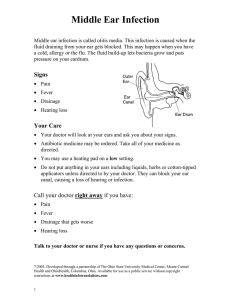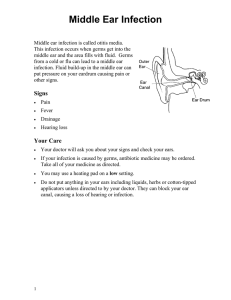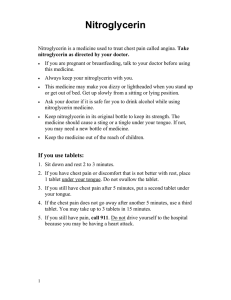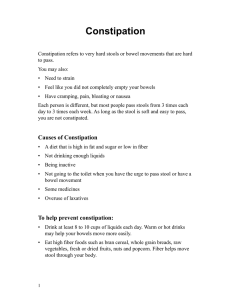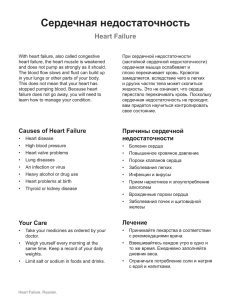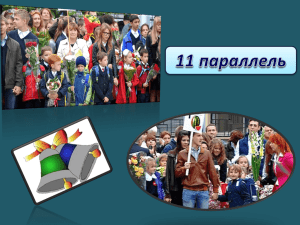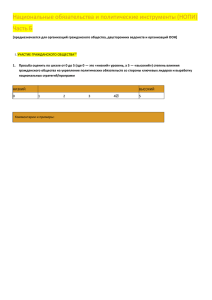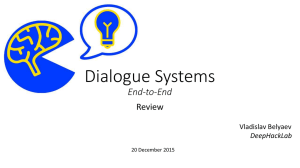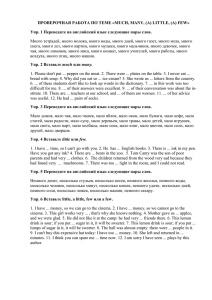UNIT 3 Ученик Правило Пример Исключения У составных
реклама
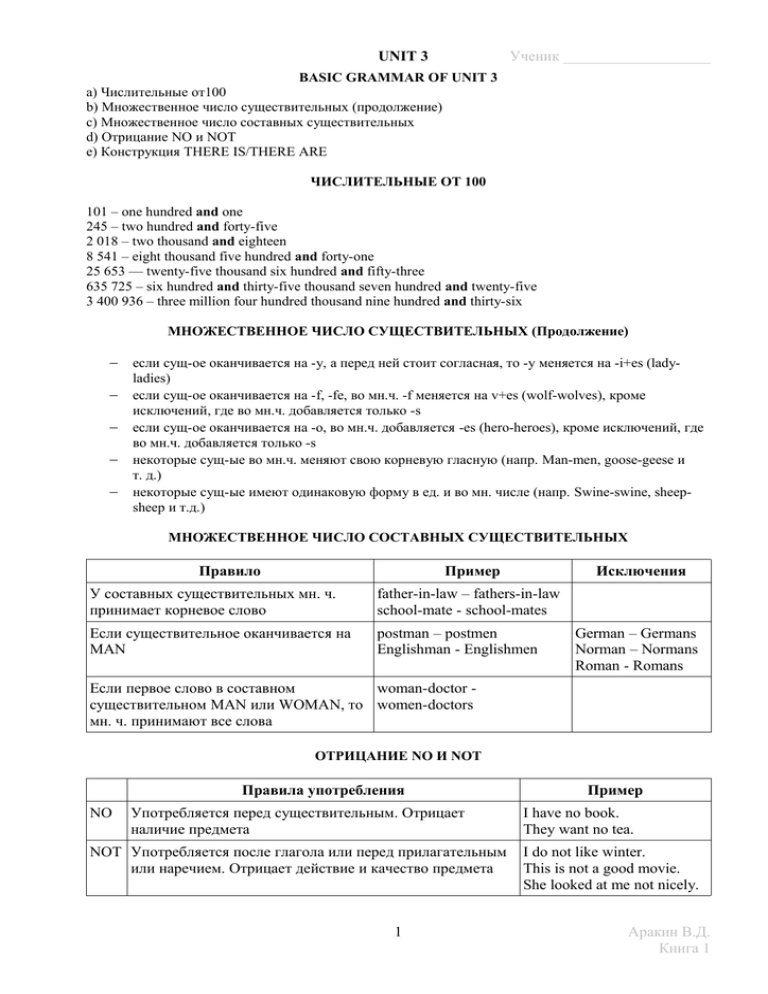
UNIT 3 Ученик ___________________ BASIC GRAMMAR OF UNIT 3 a) Числительные от100 b) Множественное число существительных (продолжение) c) Множественное число составных существительных d) Отрицание NO и NOT e) Конструкция THERE IS/THERE ARE ЧИСЛИТЕЛЬНЫЕ ОТ 100 101 – one hundred and one 245 – two hundred and forty-five 2 018 – two thousand and eighteen 8 541 – eight thousand five hundred and forty-one 25 653 — twenty-five thousand six hundred and fifty-three 635 725 – six hundred and thirty-five thousand seven hundred and twenty-five 3 400 936 – three million four hundred thousand nine hundred and thirty-six МНОЖЕСТВЕННОЕ ЧИСЛО СУЩЕСТВИТЕЛЬНЫХ (Продолжение) − если сущ-ое оканчивается на -y, а перед ней стоит согласная, то -y меняется на -i+es (ladyladies) − если сущ-ое оканчивается на -f, -fe, во мн.ч. -f меняется на v+es (wolf-wolves), кроме − − − исключений, где во мн.ч. добавляется только -s если сущ-ое оканчивается на -о, во мн.ч. добавляется -es (hero-heroes), кроме исключений, где во мн.ч. добавляется только -s некоторые сущ-ые во мн.ч. меняют свою корневую гласную (напр. Man-men, goose-geese и т. д.) некоторые сущ-ые имеют одинаковую форму в ед. и во мн. числе (напр. Swine-swine, sheepsheep и т.д.) МНОЖЕСТВЕННОЕ ЧИСЛО СОСТАВНЫХ СУЩЕСТВИТЕЛЬНЫХ Правило Пример Исключения У составных существительных мн. ч. принимает корневое слово father-in-law – fathers-in-law school-mate - school-mates Если существительное оканчивается на MAN postman – postmen Englishman - Englishmen German – Germans Norman – Normans Roman - Romans Если первое слово в составном woman-doctor существительном MAN или WOMAN, то women-doctors мн. ч. принимают все слова ОТРИЦАНИЕ NO И NOT Правила употребления NO Употребляется перед существительным. Отрицает наличие предмета NOT Употребляется после глагола или перед прилагательным или наречием. Отрицает действие и качество предмета 1 Пример I have no book. They want no tea. I do not like winter. This is not a good movie. She looked at me not nicely. Аракин В.Д. Книга 1 UNIT 3 Ученик ___________________ КОНСТРУКЦИЯ THERE IS / THERE ARE Случаи употребления Пример Употребляется при описании пространства There is a window in the room. Указывает на наличие или отсутствие предмета There are no books in my bag. Употребляется, если в предложении нет действия The boy is in the room. Если русская версия предложения начинается с обстоятельства места (где?), то необходимо начинать перевод такого предложения с этой конструкции. На столе — ручка. - There is a pen on the table. (отвечает на вопрос «что на столе?») НО: Ручка — на столе. - A pen is on the table. (отвечает на вопрос «где ручка?» Необходимо помнить, что при перечислении предметов, употребление THERE IS или THERE ARE зависит от того, в каком числе стоит первый из перечисляемых предметов! There is a chair, a table and a sofa in the room. There are chairs, a table and a sofa in the room. TEXT 1 Doctor Sandford’s family Doctor Sandford’s family is not very large. There are five of them. The five members of his family are: his mother, his sister-in-law, his son Benny, his wife Helen and himself. Helen has no parents. Old Mrs. Sandford is fifty-eight. Helen is twenty-six. Doctor Sandford is thirty. Benny is an only child and there are no boys or girls in the family for him to play with. TEXT 2 About Benny’s cousins “Granny, have I any cousins?” “Yes, Benny! You have two.” “Whose children are they? How old are they? Are they boys or girls?” “Not so many questions at once, please, Benny! Your cousins are: a five-year-old boy Georgie, and a fouryear-old girl, May. They are your Aunt Emily’s children. They are in Canada now with their parents: your Aunt Emily, my daughter, and her husband, Mr. Thomas Brown.” “In Canada? What’s Canada, granny? Where is it?” “Canada is a far-away country. It is in the North of America.” “In the North of America? Where is it? Is it as far as London?” “Oh, no Benny! It’s much farther”. “But, granny…” “Come along, my dearest. It’s just the time for your midday milk”. VOCABULARY NOTES an only child – единственный ребенок five-year-old – пятилетний at once – тут же, сразу же, сразу far-away – дальний, далёкий in the North of – на севере as far as – так же далеко, как come along – пойдём 2 Аракин В.Д. Книга 1 UNIT 3 Ученик ___________________ it’s just the time – как раз пора TOPICAL VOCABULARY Professions actor, actress, architect, businessman, chemist, composer, conductor, dentist, doctor, driver, engineer, farmer, fire-fighter, guide, interpreter, inventor, journalist, lawyer, mechanic, musician, officer, painter, physicist, pilot, playwright, poet, policeman, psychologist, research-worker, sailor, salesman, saleswoman, shopassistant, soldier, sportsman, sportswoman, surgeon, teacher, translator, tutor, typist, veterinary, waiter, waitress, worker, writer PHRASES What is your occupation? - Какой ваш род деятельности? What is your job? - Какая у вас работа? What is your post? - Какая у вас должность? What is your profession? - Какая у вас профессия? I work for the company... - Я работаю в компании... I work as a... - Я работаю (в качестве).... TASK Exercise 1 Write the plural form of the following nouns country, saleswoman, match, boy, sister-in-law, man, tooth, handkerchief, potato, deer, piano, knife, lady, foot Exercise 2 Answer the following questions 1. Is Dr. Sandford’s family large? 2. Has he a wife? 3. What is her name? 4. Has she a sister? 5. Has Dr. Sandford a father? 6. Has he a mother? 7. Has Dr. Sandford a daughter? 8. Has he a son? 9. What is his name? 10. So how many people are there in Dr. Sandford’s family? 11. How old is Dr. Sandford? 12. How old is Helen? 13. How old is Mrs. Sandford? 14. How many cousins has Benny? 15. Whose children are Georgie and May? 16. Where are Benny’s cousins? Exercise 3 Write the following in the plural 1. There is a sentence on the blackboard. 2. Is there a desk in the room? 3. There is not any book on the table.4. Is there a dictionary on the chair? 5. There is a match in the box. 6. There is a girl in the picture. 7. There is no child in their family. Exercise 4 Write the negative form of the following sentences 1. There is a telegram on the table. 2. There is a cinema near our house. 3. There are many mistakes in his dictation. 4. There is much paper in his bag. 5. There is some ink in my pen. 6. There are two sofas in the room. 7. There are a lot of children in the park today. Exercise 5 Make questions to the words in a bold font 1. There is a green notebook on the desk. 2. There is little milk in the bottle. 3. The Browns have a very large family. 4. My parents are at home. 5. Benny’s cousins are in the North of America 3 Аракин В.Д. Книга 1 UNIT 3 Ученик ___________________ Exercise 6 Translate the following sentences into English 1. На стене картина. На стене часы. На стене классная доска. На столе картофель. На столе книги. В кувшине молоко. На тарелке масло. На столе соль. На доске предложение. 2. Картина на стене. Часы на стене. Классная доска на стене. Коробки на столе. Портфели на столе. Книги на столе. Молоко в кувшине. Масло на тарелке. Соль на столе. Предложение на доске. 3. На столе лампа. Лампа на столе. На столе газеты. Газеты на столе. На улице автомобиль. Автомобиль на улице. У стены диван. Диван у стены. В коробке карандаши. Карандаши в коробке. 4. На стуле нет книги. Книга не на стуле. На стуле нет шляпы. Шляпа не на стуле. На стуле нет тетради. Тетрадь не на стуле. В коробке нет авторучки. Авторучка не в коробке. В сумке нет денег. Деньги не в сумке. 5. В портфеле не три книги, а четыре. В портфеле не пять карандашей, а шесть. В портфеле не две ручки, а одна. 6. Как раз пора обедать. Как раз пора пить чай. Exercise 7 Translate the following sentences into English: 1. Это моя комната. Посредине комнаты стоит стол. На столе кувшин. В кувшине молоко. На тарелке масло. 2. Пусть Бенни садится за стол. Как раз пора завтракать. Молоко в кувшине. Масло на тарелке. Нож около тарелки. Где хлеб? Хлеб в буфете (side-board). 3. Где журнал? На столе нет журнала. Журнал не на столе, а на стуле. 4. В коробке нет авторучки. Авторучка не в коробке, а в столе. 5. Где деньги? В сумке нет денег. Твои деньги не в сумке. Они на столе. 6. В твоем портфеле много тетрадей? – Не очень, две или три. – В твоей ручке много чернил? – Да, я так думаю. 7. На вашей улице много домов? – Да, у нас много красивых новых домов. – В вашем парке много цветов? – Не очень, но они мне очень нравятся. 4 Аракин В.Д. Книга 1
